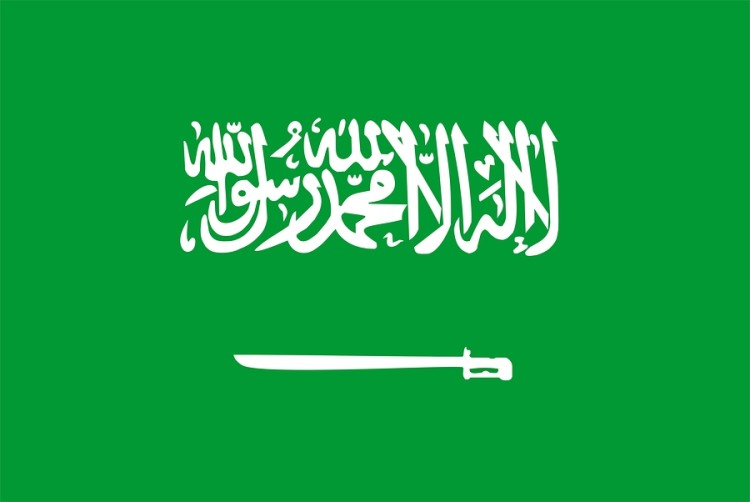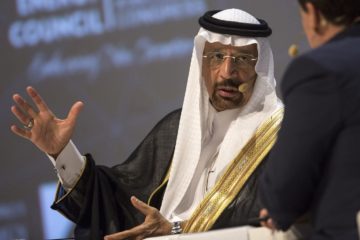Saudi Arabia Lifts Ban on Women Drivers, Ending Isolation

published Sep 26, 2017, 8:26:30 PM, by Vivian Nereim and Wael Mahdi
(Bloomberg) —
Saudi Arabia will allow women to drive cars, ending its status as the only country in the world to ban half the population from getting behind the wheel.
It’s the most dramatic move so far in the government’s bid to open up Saudi society, a counterpart to an ambitious program to modernize the economy that may soon see the oil-rich kingdom holding the world’s biggest IPO.
Women will be entitled to driving licenses starting in June next year, the official Saudi Press Agency reported, citing a royal decree. Committees from various ministries have been set up to examine implementation, and they’ll report within 30 days, the SPA said.
Saudi Arabia adheres to an austere version of Islam, and its curbs on women — as well as religious minorities — are a regular target for human rights activists. As well as being barred from the roads, Saudi women need the permission of a male guardian to marry or travel abroad.
Crown Prince Mohammed Bin Salman, the country’s predominant leader and architect of its modernization plan, risks pushback from the powerful Saudi religious establishment and traditionalists among the public. The government already cracked down on some of its conservative critics, detaining prominent clerics, academics and businessmen earlier this month.
United Nations Secretary-General Antonio Guterres praised the decision in a tweet, calling it “an important step in the right direction.”
‘Sharp and Fast’
There’s always the risk of a backlash when leaders make “too many sharp and fast moves in such a traditional culture,” said Paul Sullivan, a Middle East specialist at Georgetown University in Washington. The arrests may have been precautions ahead of the driving decision “and other changes to come,” he said. There’s been widespread speculation that King Salman may soon abdicate in favor of the crown prince.
In the past week, authorities also relaxed the rules to allow women to attend celebrations for the anniversary of the kingdom’s founding, and men and women danced together at a street party in Riyadh. Within days, there were calls on social media for the religious police to restore moral order.
In an interview in April last year, Prince Mohammed said that women deserved wider freedoms. “We believe women have rights in Islam that they’ve yet to obtain,” he said. “Changes could happen in the future, and we always hope they will be positive changes.”
Women activists in Saudi Arabia have repeatedly defied the driving ban, launching campaigns in which they’d be filmed behind the wheel of cars, illegally. Some of those who joined the early protests were publicly named, lost their jobs and were stigmatized for years.
‘Open Up’
Aziza Alyousef, who took part in two of them, said by phone that she was grateful to the kingdom’s rulers, “and also I’d like to thank every woman from the 1990s until now who participated in campaigns and continued to ask for their rights.”
The 32-year-old Prince Mohammed has already upended Saudi Arabia’s traditionally cautious foreign policy, and outlined radical changes to the economy, including a proposed share-sale in state oil company Saudi Aramco that may end up being the world’s biggest-ever initial public offering.
Many of his initiatives have run into trouble. Saudi Arabia is bogged down in a war in Yemen, and has largely abandoned its effort to topple President Bashar al-Assad in Syria. While the goals of the government’s economic program have been widely praised, some of its measures have already proved tough to implement: Cuts to bonuses and allowances for public officials were reversed amid signs of public opposition.
Gregory Gause, a Saudi specialist at Texas A&M University, said the decision to let women drive fits Prince Mohammed’s broader strategy: “open up socially (but not politically), make economic efficiency and change a center piece of domestic policy, and not pay too much attention to the religious establishment.”
‘Twitter fatwas’
The country’s top body of clerics, the Council of Senior Scholars, praised the decision in a statement on Twitter. There’ll probably also be “plenty of Twitter fatwas condemning it,” Gause said by e-mail. “There might be some resignations from the Senior Council and some people fired.”
Saudi authorities have already shut down some their critics, detaining several people said to have affiliations with conservative movements such as the Muslim Brotherhood. Earlier this month, Jamal Khashoggi, a Saudi journalist and former government adviser, described a new wave of “fear, intimidation, arrests and public shaming” after clerics and activists were arrested.
Saudi Arabia is ranked among “the worst of the worst” by Freedom House for its lack of political rights and civil liberties. Still, it’s a longstanding U.S. ally, and President Donald Trump has cultivated the kingdom’s leaders as he seeks to step up regional pressure on Iran, Saudi Arabia’s biggest rival. State Department spokeswoman Heather Nauert called it a “great step in the right direction.”
For Alyousef, the activist, it’s a giant step toward her first Saudi driving license. She said she plans to apply as soon as she can, aiming to be first in line: “I wish my license number would be 0001.”
–With assistance from Zaid Sabah and Nick Wadhams.To contact the reporters on this story: Vivian Nereim in Riyadh at vnereim@bloomberg.net ;Wael Mahdi in Kuwait at wmahdi@bloomberg.net To contact the editors responsible for this story: Andrew J. Barden at barden@bloomberg.net Andy Sharp, Brendan Scott
COPYRIGHT
© 2017 Bloomberg L.P




No Comment